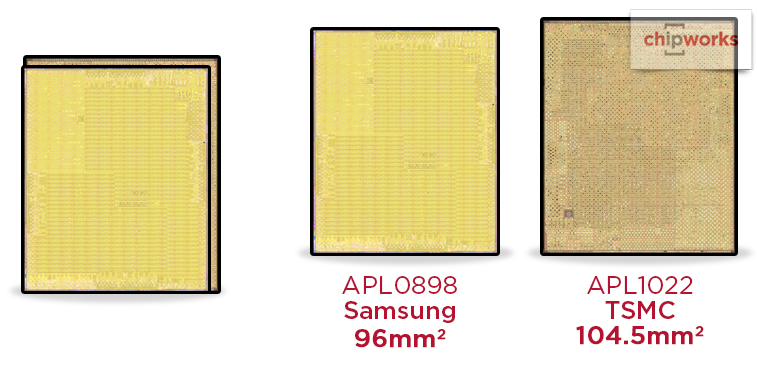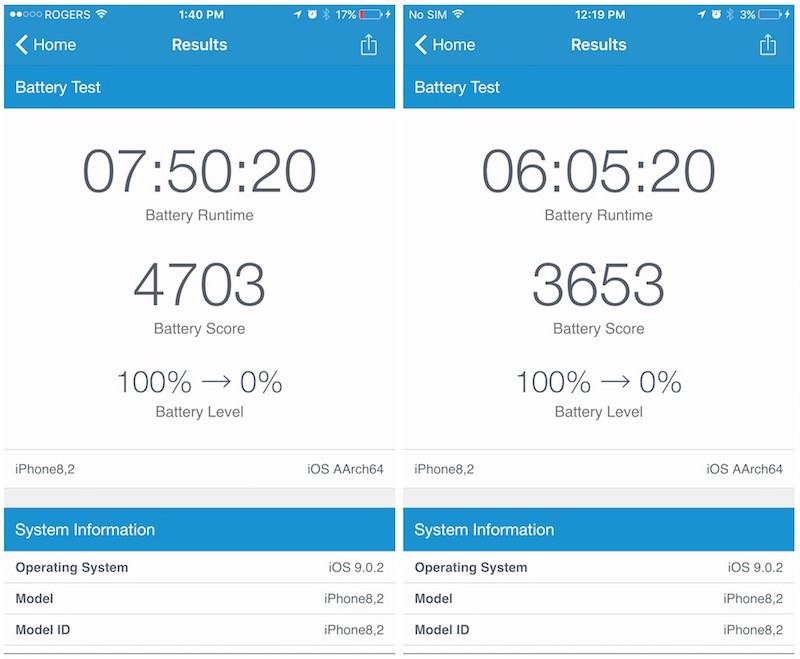iPhone 6s: Reviews, How to Buy, and Details
Power Management for Depleted Batteries
In devices that have degraded lithium-ion batteries, Apple has introduced power management features that can slow down the iPhone during times of peak power draw to prevent unexpected shutdowns.
Apple first introduced the power management features in iOS 10.2.1, but the issue received additional attention at the end of 2017 after it became clear that power management involved slowing down iPhones with batteries that are running at a sub-optimal level.
Several lawsuits have been filed against Apple accusing the company of deliberately slowing devices to encourage upgrades, which Apple says it does not do. Power management features are designed to extend the life of the iPhone rather than shorten it.
Following significant backlash over the issue, Apple announced a $29 battery replacement program, which allows customers who have an iPhone 6 or later to replace their batteries for $29 regardless of battery health. Each older iPhone is entitled to one low-cost battery replacement. Supplies were limited in early 2018 due to demand, but Apple is offering reduced-cost batteries through the end of the year.
Customers who already paid for a battery replacement for an iPhone 6 or later in 2017 from Apple or an Apple Authorized Service Provider are eligible for a $50 credit.
Any customers who are affected by the power management features and slowdowns because of a depleted battery will see improved performance after replacing the battery. It’s important to note, though, that even those affected by throttling will not see it at all times — it only kicks in at certain times when the processor is taxed.
As promised back in December, iOS 11.3 introduces a new “Battery Health” section to the Battery portion of the Settings app, which provides iOS users with more information about the health of their iPhone battery.
It includes details on current maximum capacity, current operating performance, and if an iPhone is subjected to throttling via power management features, it offers a toggle to turn it off. More details can be found in our how to post.
Power management features impact the iPhone 6, iPhone 6 Plus, iPhone 6s, iPhone 6s Plus, iPhone SE, iPhone 7, and iPhone 7 Plus.
Unexpected Shutdowns
Some iPhone 6s models manufactured between September and October 2015 suffer from an issue that causes them to unexpectedly shut down due to a problem with the battery. Apple has launched an iPhone 6s repair program to address the bug, and will offer new batteries to affected customers free of charge. Customers can see if their iPhone 6s is affected by using Apple’s support tool and entering a device serial number.
According to Apple, the affected iPhone 6s models are experiencing shutdowns because of a manufacturing issue that resulted in some batteries being overexposed to “controlled ambient air” when being built. Some models outside of the September and October 2015 timeframe may also be affected, so Apple introduced a diagnostic tool in iOS 10.2 to better diagnose the issue.
In iOS 10.2.1, Apple introduced a fix that significantly cuts down on random shutdowns on iPhone 6 and 6s devices. On the iPhone 6s, shutdowns have been reduced by 80 percent, and on the iPhone 6, shutdowns have been reduced by 70 percent. The issue is caused by uneven power draw on devices with older batteries, so Apple has updated its power management settings. While the problem has not been entirely resolved, Apple has made it less bothersome by introducing an auto-restart feature that will turn an iPhone back on without it needing to be connected to power.
Processor Variance
As it turns out, the iPhone 6s and 6s Plus use chips sourced from two different suppliers: TSMC and Samsung. There don’t seem to be performance differences between the two processors, but the chip produced by Samsung is about 10 percent smaller than the chip from TSMC.


Tests suggest TSMC produced approximately 60 percent of the A9 chips while Samsung produced 40 percent. The iPhone 6s Plus seems to use an equal number of each chip, but the iPhone 6s appears to feature more TSMC chips than Samsung chips.
There’s no indication the two chips perform differently when it comes to speed, but battery benchmark tests on iPhones with TSMC chips and iPhones with Samsung chips initially suggested there could be some significant battery life differences between the two devices, with the TSMC iPhone 6s lasting approximately two hours longer than the Samsung iPhone 6s.


Geekbench battery tests on TSMC (left) and Samsung (right) iPhone 6s Plus variants
Battery tests conducted to demonstrate real world usage showed much more minor performance differences. Testing by Ars Technica, for example, showed nearly equal battery life between an iPhone with a TSMC chip and an iPhone with a Samsung chip under identical conditions.
According to Apple, battery benchmarks like the Geekbench 3 battery test are not reflective of real world usage conditions. Data from internal testing and data gathered from Apple customers has suggested there’s only a two to three percent performance difference between the two iPhone variants, which is well within normal manufacturing tolerances.
With the Apple-designed A9 chip in your iPhone 6s or iPhone 6s Plus, you are getting the most advanced smartphone chip in the world. Every chip we ship meets Apple’s highest standards for providing incredible performance and deliver great battery life, regardless of iPhone 6s capacity, color, or model.
Certain manufactured lab tests which run the processors with a continuous heavy workload until the battery depletes are not representative of real-world usage, since they spend an unrealistic amount of time at the highest CPU performance state. It’s a misleading way to measure real-world battery life. Our testing and customer data show the actual battery life of the iPhone 6s and iPhone 6s Plus, even taking into account variable component differences, vary within just 2-3% of each other.
Based on Apple’s data, in real world conditions, any slight difference in battery life between iPhone 6s and 6s Plus models with a Samsung chip and those with a TSMC chip would be too small to notice.






